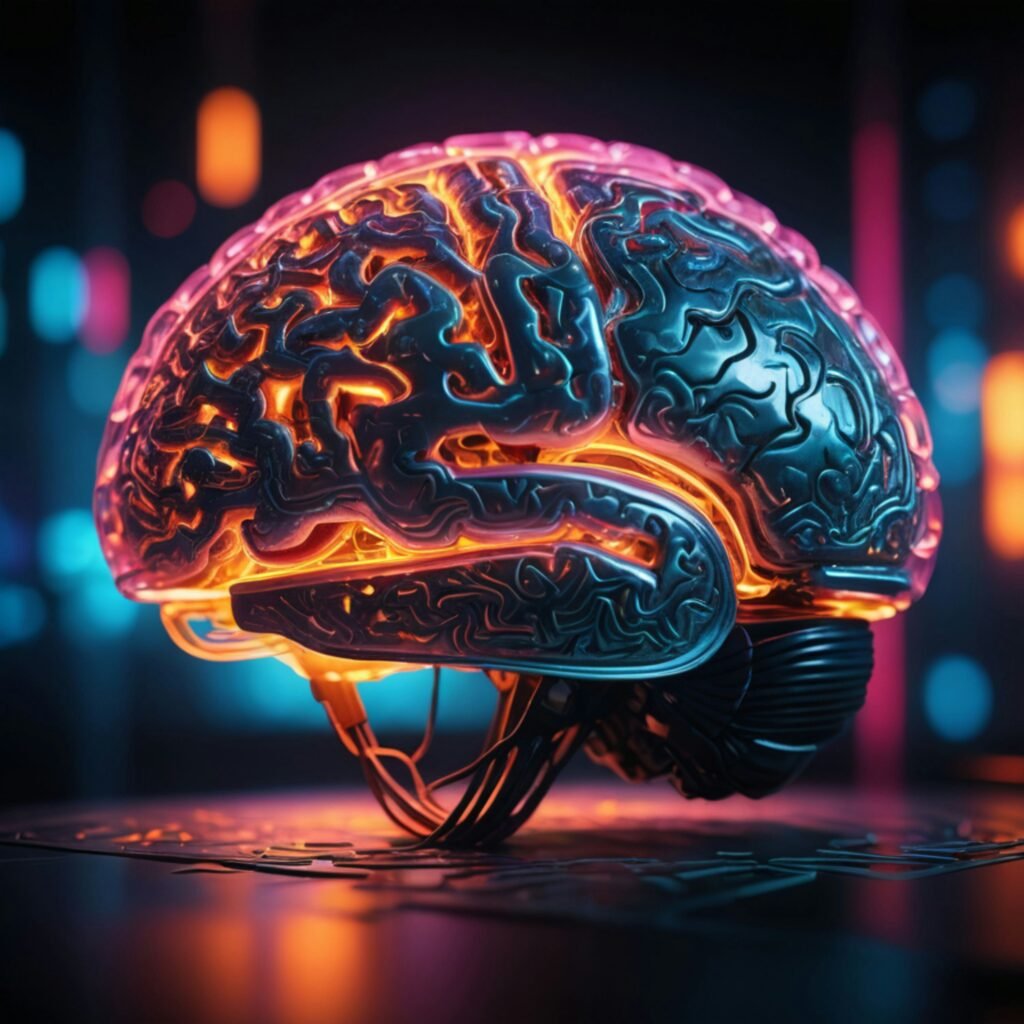
Artificial intelligence (AI) has swiftly evolved from science fiction to everyday reality, reshaping our world with its rapid advancements in machine learning, natural language processing, and robotics while raising critical questions about the future of AI and the delicate balance between technological innovation and ethical considerations. As we stand on the brink of a new era in technology, it’s crucial to examine how AI will continue to transform our lives, from virtual assistants on our smartphones to complex algorithms powering autonomous vehicles, and to consider the ethical implications of these developments.
The Current State of AI: A Technological Revolution
Before we dive into the future, let’s take a moment to assess where we are now. AI has made significant strides in various fields:
- Machine Learning: Algorithms that can learn from data and improve their performance over time.
- Natural Language Processing: Systems that can understand, interpret, and generate human language.
- Computer Vision: Technologies that enable machines to interpret and analyze visual information from the world.
- Robotics: The integration of AI into physical machines, enabling them to perform complex tasks.
These advancements have led to breakthroughs in healthcare, finance, transportation, and countless other industries. AI-powered diagnostic tools are improving medical accuracy, predictive algorithms are revolutionizing financial markets, and self-driving cars are inching closer to widespread adoption.
The Promise of AI: Innovations on the Horizon
As we look to the future, the potential applications of AI seem limitless. Here are some exciting developments we can expect to see:
1. Personalized Medicine
AI will play a crucial role in tailoring medical treatments to individual patients. By analyzing vast amounts of genetic and health data, AI systems will be able to predict disease risks, recommend personalized treatment plans, and even design custom drugs.
2. Climate Change Mitigation
AI algorithms will help us better understand and combat climate change. From optimizing energy grids to developing new materials for carbon capture, AI will be an essential tool in our fight against global warming.
3. Enhanced Education
AI-powered adaptive learning systems will revolutionize education, providing personalized learning experiences tailored to each student’s needs, pace, and learning style.
4. Advanced Robotics
The next generation of robots, equipped with more sophisticated AI, will be capable of performing complex tasks in various environments, from deep-sea exploration to space missions.
5. Quantum AI
The combination of quantum computing and AI promises to solve complex problems at unprecedented speeds, potentially leading to breakthroughs in fields like cryptography and drug discovery.
The Ethical Considerations: Navigating the AI Landscape
While the potential benefits of AI are immense, we must also grapple with the ethical implications of this powerful technology. As AI becomes more advanced and ubiquitous, several key concerns emerge:
1. Privacy and Data Protection
As AI systems rely on vast amounts of data to function, questions about data privacy and protection become increasingly important. How do we ensure that personal information is safeguarded while still allowing AI to learn and improve?
2. Bias and Fairness
AI systems can inadvertently perpetuate and amplify existing biases present in their training data. Addressing this issue is crucial to ensure that AI-driven decisions are fair and equitable across all demographics.
3. Accountability and Transparency
As AI systems become more complex, it becomes harder to understand how they arrive at their decisions. Ensuring transparency and accountability in AI decision-making processes is essential, especially in critical areas like healthcare and criminal justice.
4. Job Displacement
The automation of tasks through AI will inevitably lead to job displacement in certain sectors. How do we manage this transition and ensure that the benefits of AI are distributed equitably across society?
5. Autonomous Weapons
The development of AI-powered autonomous weapons raises serious ethical concerns about the future of warfare and the potential for uncontrolled escalation.
Striking the Balance: Innovation with Responsibility
To harness the full potential of AI while mitigating its risks, we need a multifaceted approach that involves various stakeholders:
1. Ethical AI Development
Tech companies and researchers must prioritize ethical considerations in the development of AI systems. This includes diverse representation in AI teams, rigorous testing for biases, and transparent reporting of AI capabilities and limitations.
2. Regulatory Frameworks
Governments and international bodies need to develop comprehensive regulatory frameworks for AI. These should be flexible enough to allow for innovation while providing clear guidelines on data protection, algorithmic transparency, and accountability.
3. Education and Awareness
As AI becomes more prevalent, it’s crucial to educate the public about its capabilities, limitations, and potential impacts. This will enable informed decision-making and foster a more AI-literate society.
4. Interdisciplinary Collaboration
Addressing the complex challenges of AI requires collaboration between technologists, ethicists, policymakers, and domain experts from various fields. This interdisciplinary approach will help ensure that AI development aligns with societal values and needs.
5. Human-AI Collaboration
Rather than viewing AI as a replacement for human intelligence, we should focus on developing AI systems that augment and enhance human capabilities. This collaborative approach can lead to more robust and ethical AI applications.
The Road Ahead: Embracing AI’s Potential
As we navigate the future of AI, it’s important to approach this technology with both optimism and caution. The potential benefits of AI in solving complex global challenges are immense, but we must remain vigilant about its ethical implications.
By fostering a culture of responsible innovation, we can create AI systems that not only push the boundaries of what’s technologically possible but also align with our values and contribute to the greater good of society.
The future of AI is not predetermined. It’s up to us – developers, policymakers, and citizens – to shape this technology in a way that benefits humanity as a whole. By striking the right balance between innovation and ethics, we can ensure that AI becomes a powerful tool for positive change in our world.
As we continue to explore the vast potential of artificial intelligence, let’s remember that the most important intelligence is our own. It’s our human wisdom, empathy, and foresight that will ultimately determine how we harness the power of AI to create a better future for all.
Conclusion: A Call to Action
The future of AI is bright, but it requires our active participation to ensure it develops in a way that benefits all of humanity. Whether you’re a technologist working on cutting-edge AI systems, a policymaker shaping the regulatory landscape, or simply an interested citizen, you have a role to play in this AI revolution.
Stay informed about AI developments, engage in discussions about its ethical implications, and advocate for responsible AI practices. By working together, we can create a future where artificial intelligence enhances our lives, empowers our decision-making, and helps us tackle some of the most pressing challenges facing our world.
The journey of AI is just beginning, and the most exciting chapters are yet to be written. Let’s ensure that this story is one of human ingenuity, ethical innovation, and shared progress. The future of AI is in our hands – let’s shape it wisely.
